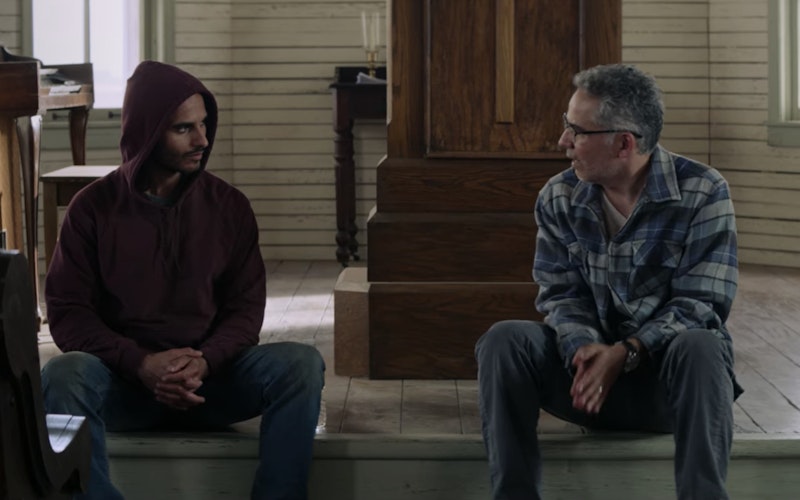
TV
What Netflix’s Messiah Gets Right About Jesus
Movies and television shows that attempt to depict Jesus usually elicit the response, “I like the book better.” Netflix’s Messiah, however, tries to do something a bit different, putting forth a present-day retelling of sorts that might make us look at Jesus—and ourselves—from a different angle. It may even force us back to the gospel to ask: do I really want to follow the strange Messiah I find there?
The show revolves around the title character, known as al-Masih (Mehdi Dehbi), who appears on the scene in modern Damascus miraculously providing deliverance for a town under siege by ISIS. As al-Masih performs miracles throughout the Middle East and the United States, he accumulates both believers devoted to him and skeptics committed to unmasking him as a con artist. Though the show does get bogged down a bit in the middle of its 10-episode first season, Messiah draws some provocative parallels with Scripture, opening up opportunities to see Jesus and ourselves in a fresh light.
One way that Messiah helps us see Jesus better is its depiction of the confusion about how to categorize and understand al-Masih. As al-Masih bursts on the scene in the first two episodes, we’re introduced to two people trying to figure out who he is: American CIA agent Eva Gellar (Michelle Monaghan) and Jewish Shin Bet agent Aviram Dahan (Tomer Sisley). Part of their challenge is trying to map al-Masih onto the current categories of the geopolitics of the Middle East. Is he a terrorist? Is he pro-Palestinian? Pro-Israel? Is he Muslim? Christian? Jewish?
As the storyline continues to unfold, we’re introduced to Pastor Felix Iguero (John Ortiz), a down-on-his-luck pastor, as well as his wife Anna (Melinda Page Hamilton) and daughter Rebecca (Stefania LaVie Owen). Their family is caught up in the storm surrounding al-Masih after he miraculously saves Rebecca and their church building from a tornado. But even their engagement with this messianic figure is muddled. What does he really want? How are they supposed to respond? Why doesn’t he give us all the answers? The one thing that becomes obvious as the season goes along is that neither the believers nor the skeptics can make sense of what al-Masih is doing.
Messiah draws some provocative parallels with Scripture, opening up opportunities to see Jesus and ourselves in a fresh light.
This is a helpful parallel to the Jesus of the gospel. If we are too familiar with Jesus and the Bible, we may miss that, often, the main response to Jesus from both detractors and disciples is simply confusion. Is he a zealot Messiah, leading the people in an uprising against Rome? Yes and no. He proclaims a kingdom, but it doesn’t parallel any other kingdom we know of. Is he a religious reformer, calling people to more faithfully follow God? Yes and no. He does seem to be leading a renewal movement, but it’s not just that he’s calling people to follow God. He is saying that he is God in the flesh, a highly controversial claim for good religious people to buy. The Jesus of the Bible doesn’t fit into pre-existing categories.
Likewise, Messiah makes me ask: how can Christians bear witness to Jesus today in a way that refuses our typical categories and frameworks? Our default tendency is to make Jesus fit into the categories we already have. How often do we map Jesus onto the categories of our political and cultural landscape? Was Jesus more of a political conservative or progressive? Was Jesus more of a well-cultured mainline Protestant or a Bible-thumping, born-again evangelical?
In framing things this way, we often domesticate Jesus by slotting him into our prefabricated categories, rather than allow ourselves to be disturbed by the way he breaks down our assumptions, and then reframes our lives with himself at the center. Pastor Felix gets at the crux of the matter in Episode 5: “What happens when God chooses you? Then you have no control. Then he’s not a part of your story, you’re a part of his.” If we’re honest, trying to make Jesus part of our story—fit our categories—is a subtle way of both acknowledging Jesus and yet maintaining our control over his narrative.
So Messiah primes us to return to the gospel with fresh eyes, finding a Jesus who does not give answers so much as he asks questions. And chief among them is one we must answer not merely with our words, but with the shape we give to our lives: “Who do you say I am?”
Topics: TV